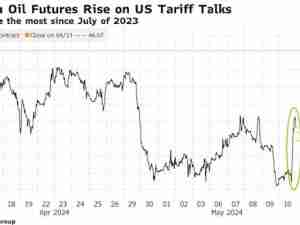US sugar refiners challenge deal over Mexico imports
By: Reuters | Feb 23 2015 at 05:59 AM | International Trade
A deal to set limits on sugar imports to the United States from Mexico would squeeze U.S. sugar refiners, refiners said, while sugar growers from both countries said the deal should stand.
Louis Dreyfus Commodities' Imperial Sugar Co and AmCane Sugar LLC are challenging agreements hammered out to end a dispute over Mexican sugar exports, which set a price floor and partly rolled back Mexico's open access to the U.S. market, in exchange for suspending hefty import duties.
The challenge is the first of its kind and could overturn the agreements. But lawyers representing U.S. and Mexican sugar producers said the complaint went beyond the scope of the original dispute and should be rejected.
Imperial Sugar Chief Executive Michael Gorrell, whose firm accounts for 7.5 percent of the sugar produced in the United States, said the deal would crimp supplies of raw sugar. That would push up prices and lock in too much imported refined sugar at a time when there was significant spare capacity in refining.
"In this environment, every tonne of imported, refined sugar hurts, especially when it's dumped and subsidized," he told the U.S. International Trade Commission (ITC), which is reviewing the suspension agreements signed in December.
Imperial and other refiners buy raw sugar locally and overseas and compete with imported refined sugar.
AmCane Chief Executive David Rosenzweig said the agreements as designed now set prices for refined sugar too low, guaranteeing underselling. They would also lead to raw sugar shortages and high prices.
"We are getting hit on two sides," he told the ITC.
"If we get the volume at a price that works, we get the opportunity to compete and can keep our plants and our jobs open."
But Juan Cortina, the president of Mexico's sugar chamber, said there was plenty of Mexican sugar available and refiners were using the challenge to get preferential treatment.
"Two very small entities in a large U.S. industry are asking for unique protection - and not from unfairly traded imports," he said.
Mexico has said the agreement, though not ideal, is preferable to furthering a bitter trade dispute. Experts have warned that if the dispute escalates, Mexico might take retaliatory action against U.S. exports of high fructose corn syrup.
"Mexico is convinced that the agreements will ensure and maintain the delicate balance in trade of sweeteners between Mexico and the United States," said Mexican embassy trade official Kenneth Smith Ramos. (Reuters)









